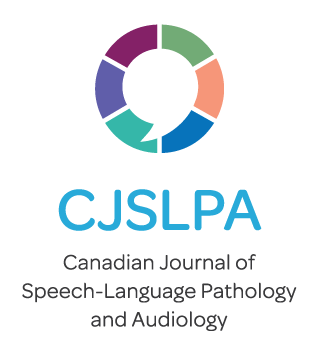

| Author(s) |
Charles Laszlo, PhD |
| Volume | 18 |
| Number | 4 |
| Year | 1994 |
| Page(s) | 248-252 |
| Language | English |
| Category | |
| Keywords |
disability hearing identity |
| Abstract |
Those who hear well are generally unaware or understand poorly the issues and problems that face hard-of-hearing people. The self-awareness of hard-of-hearing individuals is also inadequate. Awareness of the commonality of the obstacles faced by most hard-of-hearing people motivates organized efforts to define these obstacles and to find appropriate solutions. Awareness and self-awareness are more easily achieved by a group with a well-defined identity. Hard-of-hearing is clearly distinct from the Deaf identity that is rooted in signed languages and the Deaf culture. For hard-of-hearing people, the social dynamics and motivation to develop an identifiable and distinct cultural identity are very different from those of Deaf people, because of the wide variations in hearing problems and the fact that their social interactions remain mostly verbal. The lack of a common identity strongly influences the effort to change societal perceptions of the nature and consequences of hearing loss. Ceux qui ont une audition normale comprennent mal les problèmes que rencontrent les personnes malentendantes. La perception qu'elles ont d'elles-même est également inadéquate. Ce n'est que lorsqu'on constate à quel point les obstacles rencontrés par les personnes malentendantes sont répandus qu'on tente de les mieux comprendre pour y trouver des solutions. Les résultats sont supérieurs si l'identité du groupe qui en est responsible est mieux définie. L'identité des personnes malentendantes est bien distincte de celle des personnes sourdes, celle-ci ayant ses racines dans la langue signée et sa culture. Pour les personnes malentendantes, la dynamique sociale et la motivation pour développer une identité culturelle identifiable et distincte sont très différentes, à cause de la grande diversité des problèmes d'audition et du fait que leurs interactions sociales sont surtout verbales, d'où la difficulté de cerner une identité commune. Ce manque d'idntitié a des répercussions importantes sur les efforts faits pour modifer la façon dont la société perçoit la nature et les conséquences d'une perte d'audition. |
| Record ID | 248 |
| Link | https://cjslpa.ca/files/1994_JSLPA_Vol_18/No_04_201-288/Laszlo_JSLPA_1994.pdf |
CJSLPA is an open access journal which means that all articles are available on the Internet to all users immediately upon publication. Users are allowed to read, download, copy, distribute, print, search, or link to the full texts of the articles, or use them for any other lawful purpose.
CJSLPA does not charge authors publication or processing fees.
Copyright of the Canadian Journal of Speech-Language Pathology and Audiology is held by Speech-Language and Audiology Canada (SAC). Appropriate credit must be given (SAC, publication name, article title, volume number, issue number and page number[s]) but not in any way that suggests SAC endorses you or your use of the work. You may not use this work for commercial purposes. You may not alter, transform, or build upon this work.